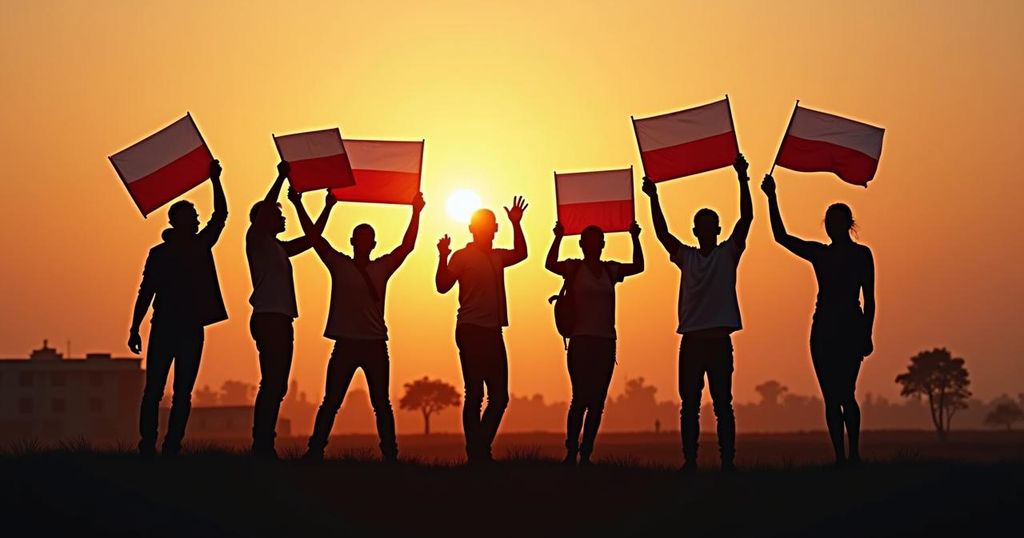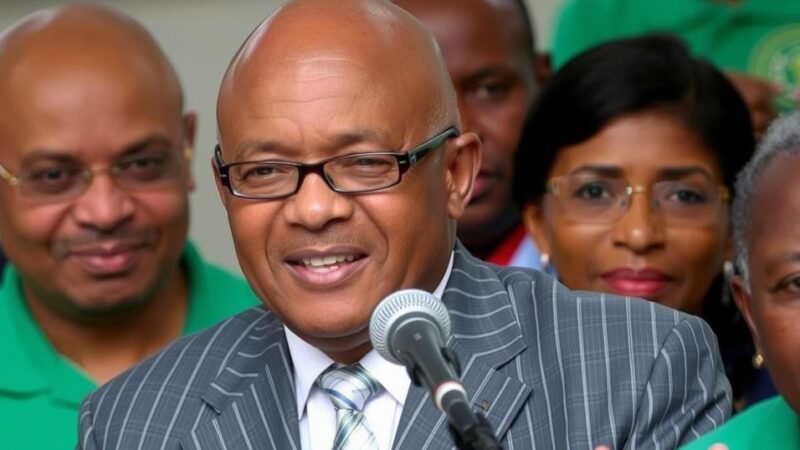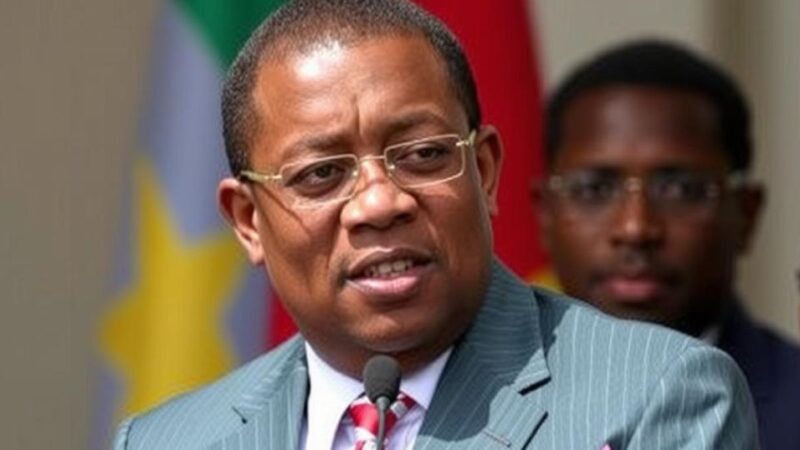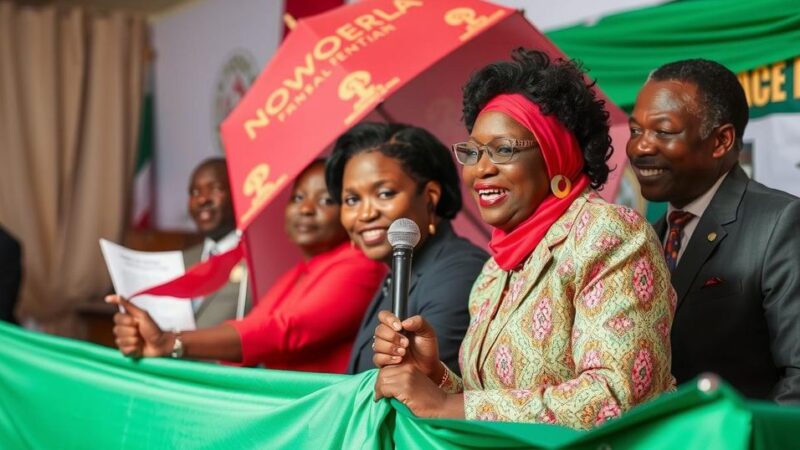Nigerian security forces have detained seven Polish nationals for displaying Russian flags during protests against economic hardship in Kano state. The Polish group included students and a lecturer. Protests have surged across Nigeria due to a cost-of-living crisis. The situation highlights rising anti-Western sentiments and the complexities of foreign influence in local protests.
Nigerian security forces have detained seven Polish individuals following their display of Russian flags during widespread protests against severe economic hardship in Nigeria. The arrests occurred in Kano state on Monday, as reported by the Nigerian secret service spokesman, Peter Afunanya, during a diplomatic gathering in Abuja. He noted that the Poles were detained due to their presence during the protests and the display of foreign flags, although no evidence of their direct involvement was disclosed. The group consists of students and a lecturer, with the Polish foreign affairs ministry confirming their detention and seeking to ascertain the details surrounding the incident with local authorities. Mass protests have erupted across Nigeria, particularly among the youth, reacting to the country’s stark cost-of-living crisis and perceived governmental failures stifling national development despite Nigeria’s status as a leading oil producer. Among the protesters, some were seen waving Russian flags, a symbolic gesture that echoes similar trends emerging in coup-stricken areas of Africa where pro-Russian sentiments are intensifying. A notable moment captured in a viral video featured a young protester holding a Russian flag alongside a sign advocating for Russian assistance. In the wake of these developments, Nigeria’s military chief, Christopher Musa, warned that such actions could be deemed treasonous under Nigerian law, a serious charge that can incur severe penalties. The Nigerian secret service has also detained individuals responsible for fabricating the Russian flags, as well as those financing their production. Authorities state that their operations are not specifically targeting Polish citizens, and they expressed willingness to collaborate with the Polish government regarding the detained nationals. Russia has officially distanced itself from the incidents involving its flags.
The protests in Nigeria represent a significant response to an escalating cost-of-living crisis, the worst in recent history. The economic challenges, exacerbated by alleged governmental mismanagement, have mobilized thousands of citizens, particularly the youth, to demonstrate against their circumstances. The emergence of pro-Russian flags during such protests indicates a growing trend of anti-Western and pro-Russian feelings within the country, which mirrors similar political sentiments witnessed in other African nations facing political upheaval. This context underscores the complex geopolitical dynamics at play and the broader implications of foreign influences in local protests.
The detention of seven Polish nationals in Nigeria emphasizes the escalating tensions surrounding national identity and foreign influence in domestic protests. With the presence of Russian flags becoming a symbol of dissatisfaction towards governance and economic decline, the situation raises critical questions regarding foreign involvement in local issues. The willingness of Nigerian authorities to clarify the circumstances surrounding these arrests, coupled with the broader implications of such protests, showcases the intricacies of contemporary sociopolitical dynamics in Nigeria.
Original Source: apnews.com







